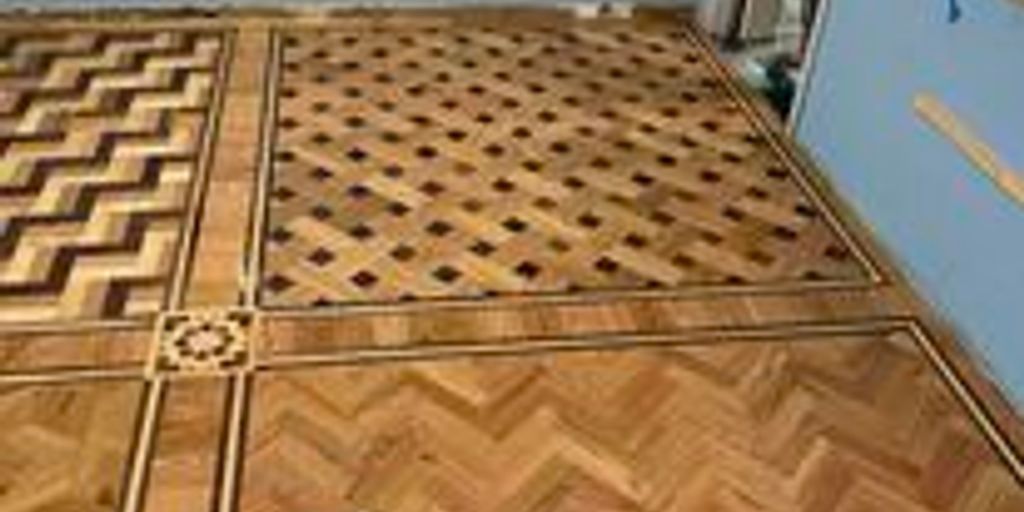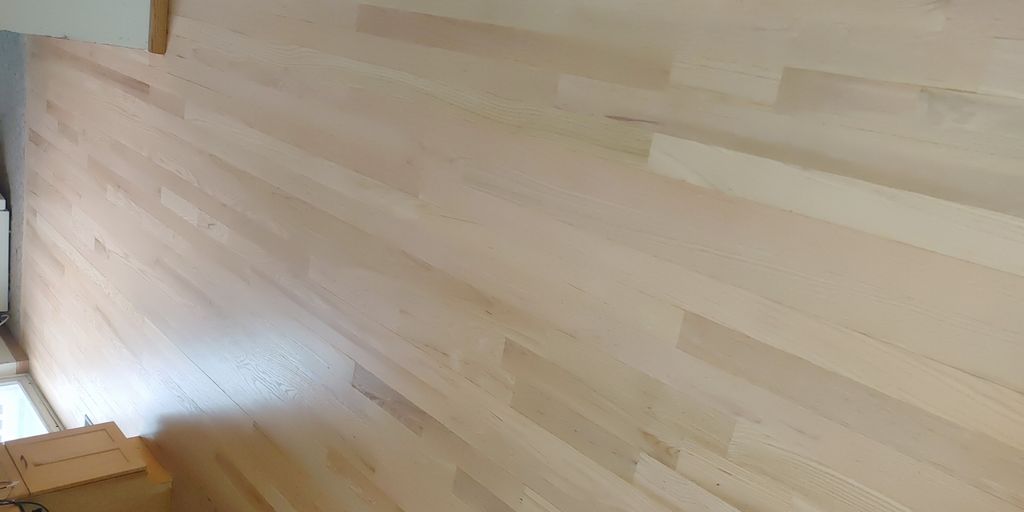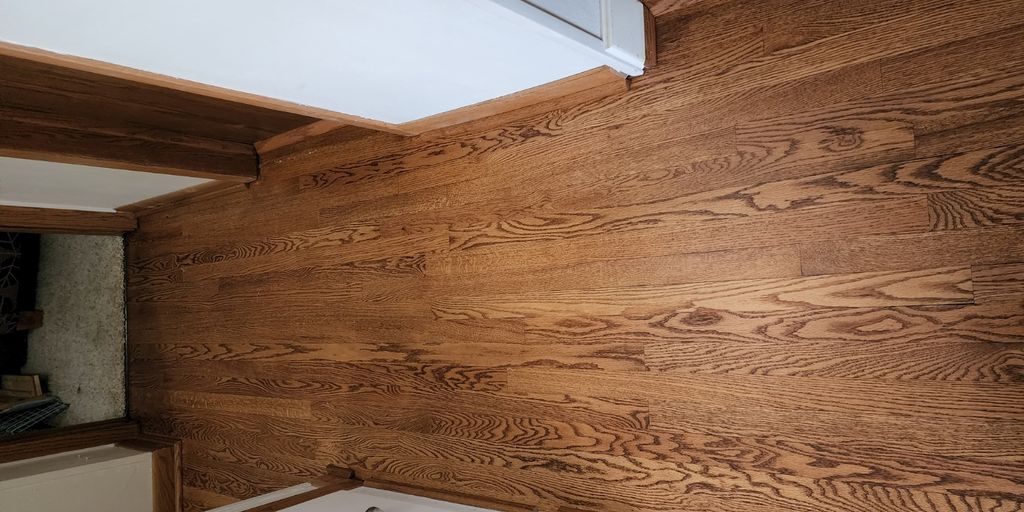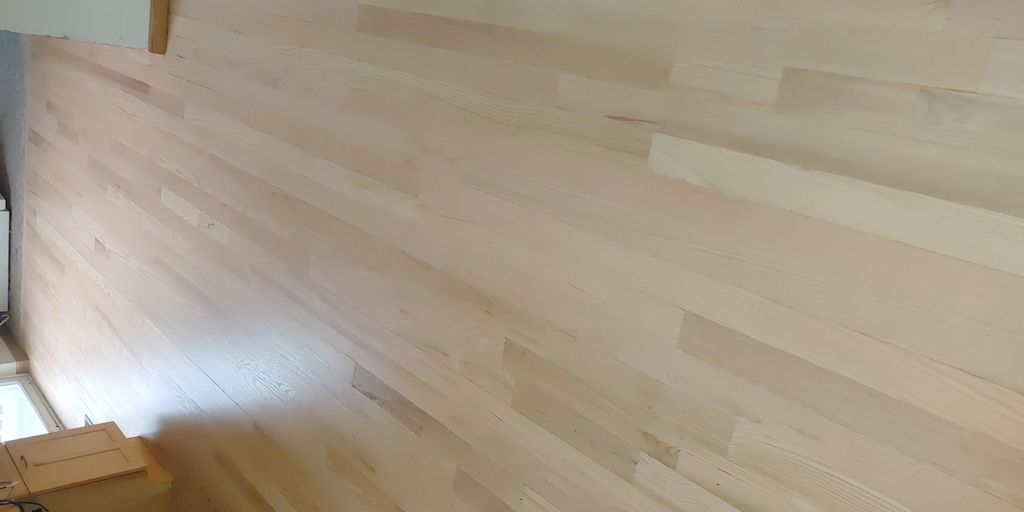Finding the right local flooring installers is essential for ensuring that your new floors look great and last a long time. This guide will help you understand the benefits of hiring local professionals, how to find trusted installers, and what to consider when choosing the right flooring for your home.
Thank you for reading this post, don't forget to subscribe!Key Takeaways
- Local flooring installers offer personalized service and expert advice tailored to your needs.
- Hiring local professionals can enhance the quality of your flooring installation.
- Supporting local businesses helps strengthen your community.
- Researching reviews and checking licenses are important steps in finding reliable installers.
- Understanding different flooring options can help you make the best choice for your home.
Understanding the Importance of Local Flooring Installers
When it comes to flooring, choosing local installers can make a big difference. Local flooring professionals bring unique advantages that can enhance your project and support your community.
Benefits of Hiring Local Professionals
- Expert Knowledge: Local installers understand the specific needs of your area, including climate and trends. They can recommend the best materials for your home.
- Personalized Service: Working with local companies means you get more attention and care. They treat you like a neighbor, not just a customer.
- Community Support: Hiring local helps boost your local economy. You’re not just getting a service; you’re supporting your community.
How Local Installers Enhance Quality
- Tailored Solutions: Local experts can provide customized solutions that fit your home’s unique requirements.
- Quality Assurance: They often have a reputation to uphold in the community, ensuring they deliver high-quality work.
- Familiarity with Local Conditions: Local installers know what works best in your area, which can lead to longer-lasting results.
Supporting Your Community Through Local Choices
- Economic Impact: Every dollar spent locally helps create jobs and supports local businesses.
- Building Relationships: Choosing local fosters connections within your community, leading to better service and trust.
- Sustainability: Local businesses often have a smaller carbon footprint due to reduced transportation needs.
In summary, hiring local flooring installers not only enhances the quality of your flooring project but also strengthens your community. By choosing local, you invest in both your home and your neighborhood.
How to Find Trusted Local Flooring Installers

Finding the right flooring installer is crucial for ensuring a successful project. Here are some effective strategies to help you locate reliable local professionals.
Researching Local Companies
Start by compiling a list of local flooring professionals. Look for companies that have a strong presence in your community. You can:
- Ask friends and family for recommendations.
- Search online directories for local installers.
- Visit local home improvement stores for suggestions.
Checking Reviews and Testimonials
Customer reviews are invaluable when assessing potential installers. Look for:
- Ratings on platforms like Google and Yelp.
- Testimonials on the company’s website.
- Feedback from social media pages.
Verifying Licenses and Certifications
Before hiring, ensure that the installer has the necessary licenses and certifications. This step is essential for:
- Confirming their legitimacy.
- Ensuring they meet industry standards.
- Protecting yourself from potential issues down the line.
Remember, hiring local flooring refinishers not only supports your community but also often leads to better service and quality work.
By following these steps, you can confidently choose a trusted local flooring installer who meets your needs and budget.
Comparing Flooring Options for Your Home
When it comes to selecting the right flooring for your home, understanding the various options available is crucial. Each type of flooring has its own unique benefits and styles. Here’s a look at some of the most popular choices:
Hardwood Flooring: Pros and Cons
- Timeless Elegance: Hardwood flooring adds a classic touch to any room, enhancing its beauty.
- Durability: With proper care, hardwood can last for decades and can be refinished multiple times.
- Investment Value: It often increases your home’s value significantly.
Vinyl vs. Laminate: Which is Better?
| Feature | Vinyl Flooring | Laminate Flooring |
|---|---|---|
| Cost | Generally lower cost | Affordable alternative |
| Durability | Highly durable and water-resistant | Scratch-resistant |
| Installation | Easy DIY installation | Simple to install |
Carpet and Tile: Finding the Right Fit
- Carpet: Provides warmth and comfort, ideal for bedrooms and living areas. It also has sound-dampening properties.
- Tile: Known for its durability and water resistance, making it perfect for kitchens and bathrooms. It comes in various styles and colors.
Choosing the right flooring material ensures your home not only looks great but also meets your daily needs. Consider factors like traffic, maintenance, and aesthetics when making your decision.
In summary, each flooring option has its own strengths and weaknesses. By understanding these differences, you can make an informed choice that suits your home and lifestyle. Remember, this guide will help you navigate the myriad of flooring choices, offering insights into the best types of flooring for different areas of your home.
The Flooring Installation Process Explained

Initial Consultation and Planning
The first step in your flooring journey is the initial consultation. This is where you discuss your needs and preferences with your installer. They will help you choose the right flooring type and style that fits your home. This step is crucial for ensuring that your vision aligns with practical options.
Preparing Your Home for Installation
Before the installation begins, it’s important to prepare your home. This includes:
- Removing old flooring: Clear out any existing flooring to make way for the new one. This can save you money if you do it yourself.
- Cleaning the subfloor: Ensure the surface is clean and free of debris to avoid issues later on.
- Acclimating materials: For hardwood, it’s essential to let the wood adjust to your home’s temperature and humidity. This helps prevent warping after installation.
Remember, proper preparation is key to a successful installation.
Ensuring a Flawless Finish
Once everything is ready, the installation team will begin laying down your new flooring. They will:
- Use precise measurements to ensure a perfect fit.
- Pay attention to detail to avoid gaps or uneven surfaces.
- Conduct a final walkthrough to ensure everything meets your expectations.
A professional installation guarantees a beautiful and durable floor that enhances your home’s value.
"Investing in quality installation is essential for long-lasting results."
By understanding the flooring installation process, you can feel confident in your choices and enjoy your new floors for years to come!
Budgeting for Your Flooring Project

When planning your flooring project, understanding your budget is crucial. A well-thought-out budget can save you from unexpected costs. Here are some key areas to consider:
Understanding Material Costs
- Flooring Type: Different materials come with varying price tags. For example, hardwood can range from $3 to $12 per square foot, while laminate may cost between $1.50 and $8.
- Size of the Area: The larger the space, the more materials you’ll need. For instance, installing 200 square feet of laminate flooring can cost between $200 and $800 in materials alone.
- Additional Materials: Don’t forget to budget for underlayment, trim, and other necessary items. It’s wise to estimate an extra 10-15% for incidentals.
Estimating Labor Expenses
- Professional Installation: Hiring experts can ensure a quality finish but will add to your costs. Labor can range from $1.50 to $4 per square foot.
- DIY Considerations: If you choose to do it yourself, factor in the cost of tools and potential rental fees for equipment.
Tips for Saving Money
- Remove Old Flooring Yourself: This can save you up to $3.50 per square foot.
- Shop Local: Local retailers often have unique deals and personalized service.
- Plan Ahead: Having a solid plan can help you stay on budget and avoid costly mistakes.
Remember, investing in quality flooring can enhance your home’s value and aesthetics.
By keeping these budgeting tips in mind, you can make informed decisions and find the best flooring options that fit your financial plan, including floor refinishing services for a fresh look without the full replacement cost.
DIY vs. Professional Flooring Installation
When it comes to flooring installation, homeowners often face the choice between doing it yourself (DIY) or hiring a professional. Each option has its own set of advantages and challenges.
Pros and Cons of DIY Installation
DIY flooring installation can be a cost-effective option for those looking to save on labor expenses. However, it’s essential to consider the following:
- Skill Level: If you’re handy and have experience, you might manage well. But complex flooring types can be challenging.
- Time Commitment: DIY projects can take longer than expected, especially if you encounter unexpected issues.
- No Warranty: Unlike professionals, DIY installations typically don’t come with warranties, meaning you’re responsible for any mistakes.
When to Hire a Professional
Hiring a professional installer can provide peace of mind and ensure a high-quality finish. Here are some reasons to consider:
- Expertise: Professionals have the skills and tools to handle any challenges that arise during installation.
- Efficiency: They can complete the job faster, saving you time and stress.
- Quality Assurance: Floors installed by professionals are smoother, sturdier, and last longer, enhancing your home’s value.
| Aspect | DIY | Professional |
|---|---|---|
| Cost | Lower initial costs | Higher due to labor expenses |
| Time | Longer due to inexperience | Faster completion |
| Quality | Variable, depends on skill | Consistent, high-quality finish |
| Warranty | None | Often includes warranty |
Ultimately, the choice between DIY and professional installation depends on your skills, time availability, and the complexity of the flooring type. Consider your priorities to make the best decision for your home.
Maintaining Your New Floors
Routine Cleaning and Care
To keep your floors looking their best, regular cleaning is essential. Here are some key practices:
- Dust mop frequently, especially in high-traffic areas, to remove grit and debris.
- Use a lightly dampened mop; avoid soap-based detergents as they can leave a dull film on the floor.
- Control humidity levels, as wood is sensitive to moisture. A humidifier can help maintain a consistent indoor climate.
Dealing with Scratches and Stains
Even with the best care, scratches and stains can happen. Here’s how to handle them:
- For minor scratches, use a wood floor repair kit to fill in the gaps.
- For deeper scratches, consider refinishing the affected area.
- Clean spills immediately to prevent stains from setting in.
When to Consider Refinishing
Refinishing your floors can restore their original beauty. It’s recommended to refinish hardwood floors every 7-10 years to maintain their appearance. Regular maintenance, including cleaning and polishing every 2-4 months, can extend the life of your floors significantly.
Remember, maintaining your floors not only enhances their beauty but also increases your home’s value. Regular care is a small investment for long-term benefits!
Exploring Different Flooring Materials
When it comes to choosing the right flooring for your home, understanding the various materials available is essential. Each type of flooring has its unique benefits and styles, making it important to find the right fit for your needs.
Eco-Friendly Flooring Options
- Bamboo Flooring: A sustainable choice that is both durable and stylish. It grows quickly and can be harvested without harming the environment.
- Cork Flooring: Made from the bark of cork trees, this option is renewable and provides excellent insulation.
- Reclaimed Wood: Using salvaged wood not only reduces waste but also adds character to your home.
Luxury Flooring Choices
- Hardwood Flooring: Known for its timeless elegance, hardwood can significantly enhance your home’s value. It comes in various species like oak and maple, offering a range of colors and finishes. Hardwood floors can last a lifetime with proper care.
- Luxury Vinyl Plank (LVP): This option mimics the look of real wood or stone at a fraction of the cost, making it a popular choice for homeowners.
- Natural Stone: Options like marble and granite provide a luxurious feel but can be more expensive and require more maintenance.
Affordable Alternatives
- Laminate Flooring: A cost-effective option that offers the appearance of wood or stone without the high price tag. It’s easy to install and durable, making it suitable for high-traffic areas.
- Vinyl Flooring: Available in sheets or tiles, vinyl is water-resistant and easy to clean, making it ideal for kitchens and bathrooms.
- Carpet: A soft and warm option that adds comfort to any room. It comes in various styles and colors, allowing for personalization.
Choosing the right flooring material is crucial for ensuring your home not only looks great but also meets your daily needs. Consider factors like durability, maintenance, and style to make the best choice for your space.
Questions to Ask Your Flooring Installer
Understanding the Warranty
Before you start your flooring project, it’s crucial to understand the warranty offered by your installer. A solid warranty can protect your investment. Ask about the duration and what it covers, including any potential issues that may arise after installation.
Clarifying the Installation Timeline
Knowing how long the installation will take is essential for planning. Inquire about the estimated start and completion dates. This helps you manage your schedule and expectations effectively.
Discussing Post-Installation Support
After your floors are installed, you may have questions or need assistance. Ask your installer about the support they provide post-installation. Will they be available for follow-up questions or concerns? Understanding this can give you peace of mind.
Remember, asking the right questions can lead to a smoother installation process and a better overall experience.
Additional Considerations
Here are a few more questions to consider:
- What type of flooring do you recommend for my specific needs?
- Can you provide references from previous clients?
- What is your process for handling unexpected issues during installation?
The Impact of Flooring on Home Value
When it comes to enhancing your home, new flooring can significantly boost its value. Homebuyers often look for features that stand out, and quality flooring is one of them. Here’s how different flooring choices can impact your home’s market appeal:
How Flooring Choices Affect Resale Value
- Hardwood Flooring: Installing hardwood can yield a return on investment (ROI) of up to 118%. It’s a timeless choice that many buyers prefer.
- Vinyl and Laminate: While these options are budget-friendly, they may not add as much value as hardwood. However, they can still enhance the overall look of your home.
- Eco-Friendly Options: Sustainable materials are becoming increasingly popular. They not only appeal to environmentally conscious buyers but can also increase your home’s value.
Popular Flooring Trends
- Luxury Vinyl Plank: Mimics the look of wood and is durable, making it a favorite among homeowners.
- Refinished Hardwood: A great way to restore the beauty of existing floors, offering a high ROI of 147%.
- Tile Flooring: Ideal for kitchens and bathrooms, tile is durable and easy to maintain, appealing to many buyers.
Long-Term Benefits of Quality Flooring
- Durability: Quality flooring lasts longer, reducing the need for frequent replacements.
- Aesthetic Appeal: Beautiful floors enhance the overall look of your home, making it more inviting.
- Maintenance: Easier to clean and maintain, which is a plus for potential buyers.
Investing in quality flooring is not just about aesthetics; it’s a smart financial decision that can lead to a quicker sale and a higher selling price.
In summary, the right flooring can make a significant difference in your home’s value. Whether you choose hardwood, vinyl, or eco-friendly options, consider how each choice aligns with your long-term goals for your property.
When it comes to boosting your home’s value, the type of flooring you choose plays a big role. Quality flooring not only enhances the look of your space but also makes it more appealing to potential buyers. If you’re thinking about upgrading your floors, visit our website to learn more about our services and get a special discount!
Final Thoughts on Finding Local Flooring Installers
In conclusion, finding reliable local flooring installers is key to achieving the beautiful and durable floors you desire. By exploring local retailers, you can discover great deals while supporting your community. Building relationships with suppliers can lead to better prices and personalized service. Remember, professional installation ensures that your floors are laid correctly, enhancing their longevity and appearance. Whether you choose hardwood, vinyl, or carpet, investing in quality flooring and skilled installers will elevate your home’s value and comfort. Take your time, do your research, and you’ll find the perfect flooring solution that fits your style and budget.
Frequently Asked Questions
What are the benefits of hiring local flooring installers?
Hiring local flooring installers can save you money, provide personalized service, and support your community. They often know the best materials for your area and can offer tailored advice.
How can I find trustworthy local flooring installers?
To find reliable local flooring installers, check online reviews, ask for recommendations from friends or family, and verify their licenses and certifications.
What types of flooring options are available?
There are many flooring options to choose from, including hardwood, vinyl, laminate, carpet, and tile. Each type has its own pros and cons, so consider your needs and budget.
What is the flooring installation process like?
The flooring installation process typically includes an initial consultation, measuring the area, preparing the space, and finally installing the flooring. A final walkthrough ensures everything looks good.
How do I budget for a flooring project?
When budgeting for a flooring project, consider material costs, labor expenses, and any extra fees. It’s also wise to set aside some funds for unexpected costs that may arise.
Should I install flooring myself or hire a professional?
If you’re handy and have experience, you might consider a DIY installation. However, hiring a professional can save time and ensure a high-quality finish.
How do I maintain my new floors?
To keep your new floors looking great, regularly clean them, deal with scratches and stains promptly, and consider refinishing them when necessary.
What questions should I ask my flooring installer?
Before hiring a flooring installer, ask about their warranty, the estimated timeline for installation, and what kind of support they offer after the job is done.



